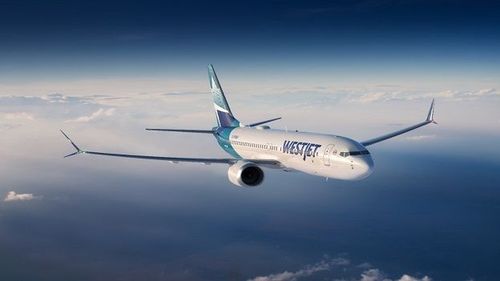WestJet acquires Shell Aviation's first SAF available for purchase in Canada

SOURCE: WestJet
April 19, 2024
BY WestJet
WestJet today announced that it has purchased the first sustainable aviation fuel (SAF) supplied in Canada by Shell Aviation, marking another milestone in WestJet's mission to achieve net-zero emissions by 2050, and signifying another step forward in making Canada's aviation industry more sustainable.
"WestJet is committed to enhancing our position as a first mover in sustainability technologies. Just as we pioneered advancements in Winglets and drag reduction, WestJet proudly stands as the first airline to acquire SAF by Shell in Canada," said Angela Avery, WestJet Group Executive Vice President and Chief People, Corporate and Sustainability Officer. "Thanks to Shell's world-class fuel supply chain and WestJet's proven track record in sustainability, this first step sets the stage for future collaboration and innovation to encourage investments in this important lever for decarbonization."
Advertisement
With the right regulatory and investment environment, SAF remains one of the more viable and scalable in-sector options for reducing emissions in the 2050 timeframe and has the potential to reduce lifecycle emissions by up to 80 per cent when used neat, compared with conventional aviation fuel1. WestJet remains committed to working with government and industry partners toward the establishment of a sustainable, long-term commercial framework for SAF. SAF acquired from Shell Aviation is blended with conventional jet fuel to meet all certification and safety requirements, while requiring no new investments in aircraft engines, fuel infrastructure or distribution processes.
"We are delighted to supply WestJet with SAF, as we continue to support our customers on their decarbonization journeys, while simultaneously building out the supply chain in Canada to enable more customers to access SAF," said Christine Bassitt, General Manager, Shell Aviation, Americas.
Advertisement
To supply WestJet with SAF, Shell Aviation uses a program called Avelia, one of the world's first blockchain-powered digital SAF book-and-claim solutions for air travel. Avelia uses blockchain to provide clear and transparent tracking of the environmental attributes of SAF delivered into the aviation fueling network. Environmental attributes can be allocated to both airlines and business customers, while avoiding issues such as double counting. This means corporations can confidently view verified lifecycle emissions reductions from SAF today, while working to establish sufficient SAF to meet their future net zero or science-based targets.
WestJet remains committed to sustainable aviation while continuing to provide affordable air travel for Canadians. Current focus areas include reducing emissions intensity, progressive fleet modernization plans and advocacy for sustainable aviation fuel production in Canada.
Related Stories
The U.S. Energy Information Administration maintained its forecast for 2025 and 2026 biodiesel, renewable diesel and sustainable aviation fuel (SAF) production in its latest Short-Term Energy Outlook, released July 8.
XCF Global Inc. on July 10 shared its strategic plan to invest close to $1 billion in developing a network of SAF production facilities, expanding its U.S. footprint, and advancing its international growth strategy.
U.S. fuel ethanol capacity fell slightly in April, while biodiesel and renewable diesel capacity held steady, according to data released by the U.S. EIA on June 30. Feedstock consumption was down when compared to the previous month.
XCF Global Inc. on July 8 provided a production update on its flagship New Rise Reno facility, underscoring that the plant has successfully produced SAF, renewable diesel, and renewable naphtha during its initial ramp-up.
The USDA’s Risk Management Agency is implementing multiple changes to the Camelina pilot insurance program for the 2026 and succeeding crop years. The changes will expand coverage options and provide greater flexibility for producers.
Upcoming Events










